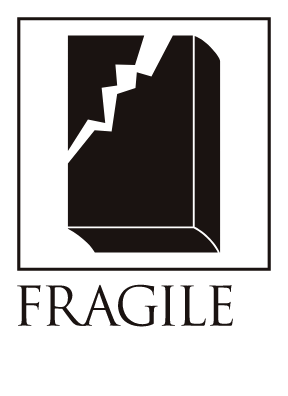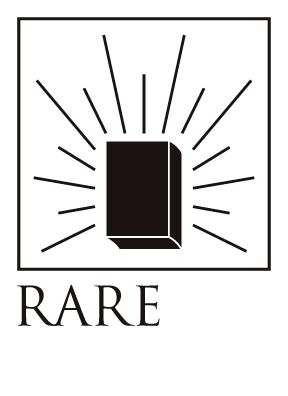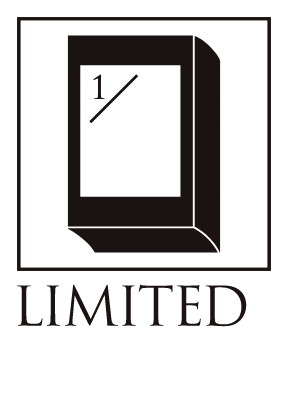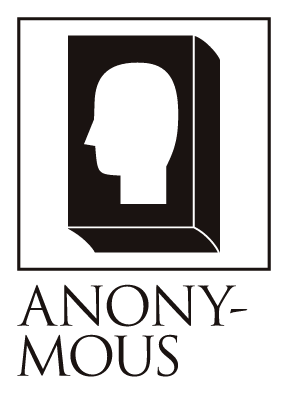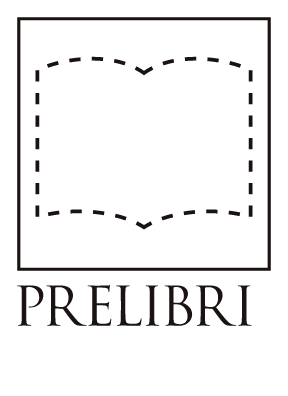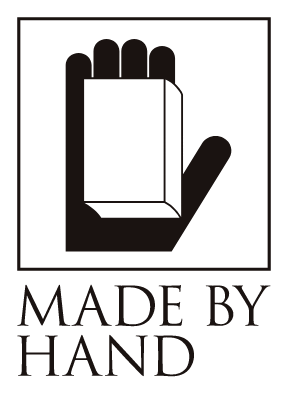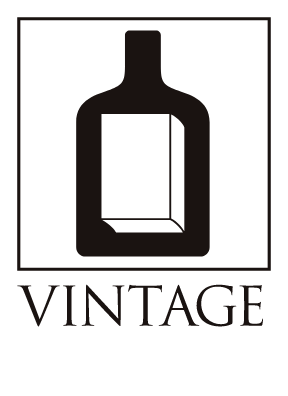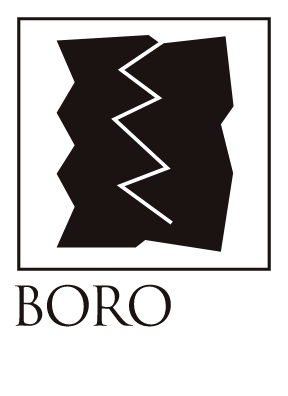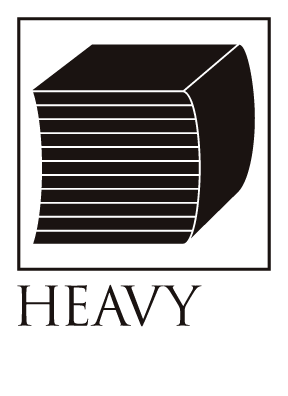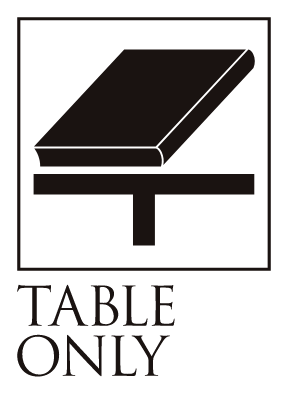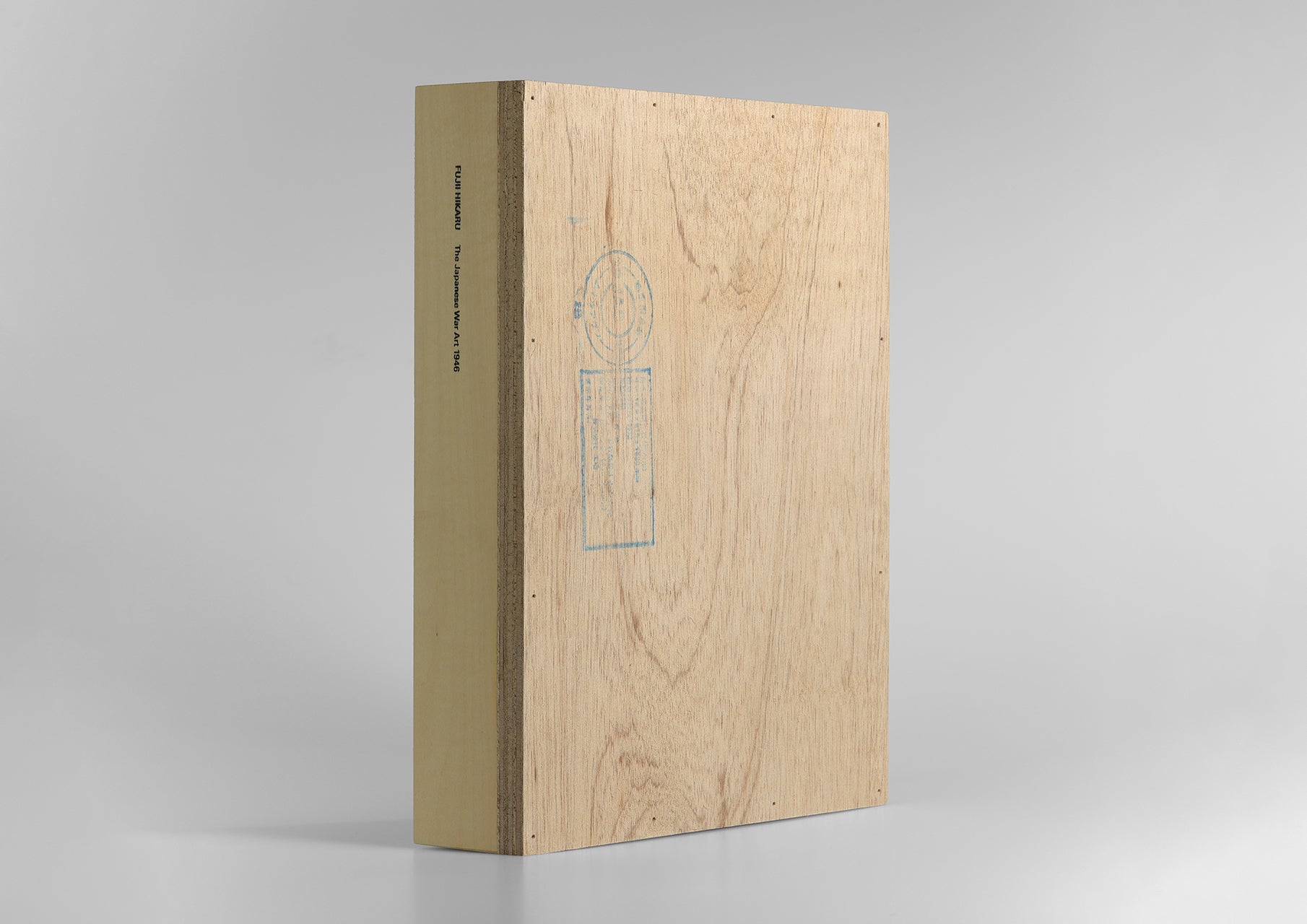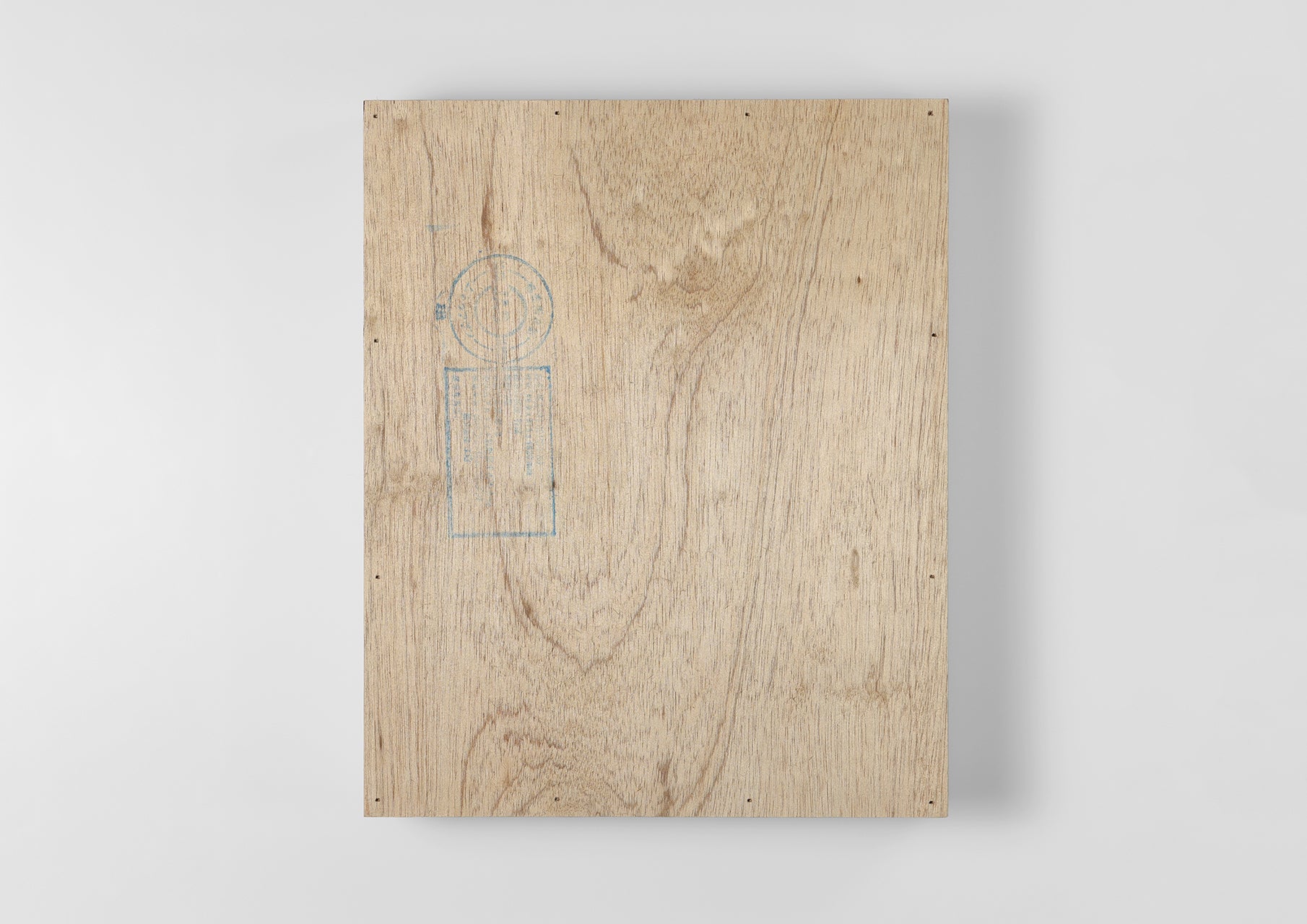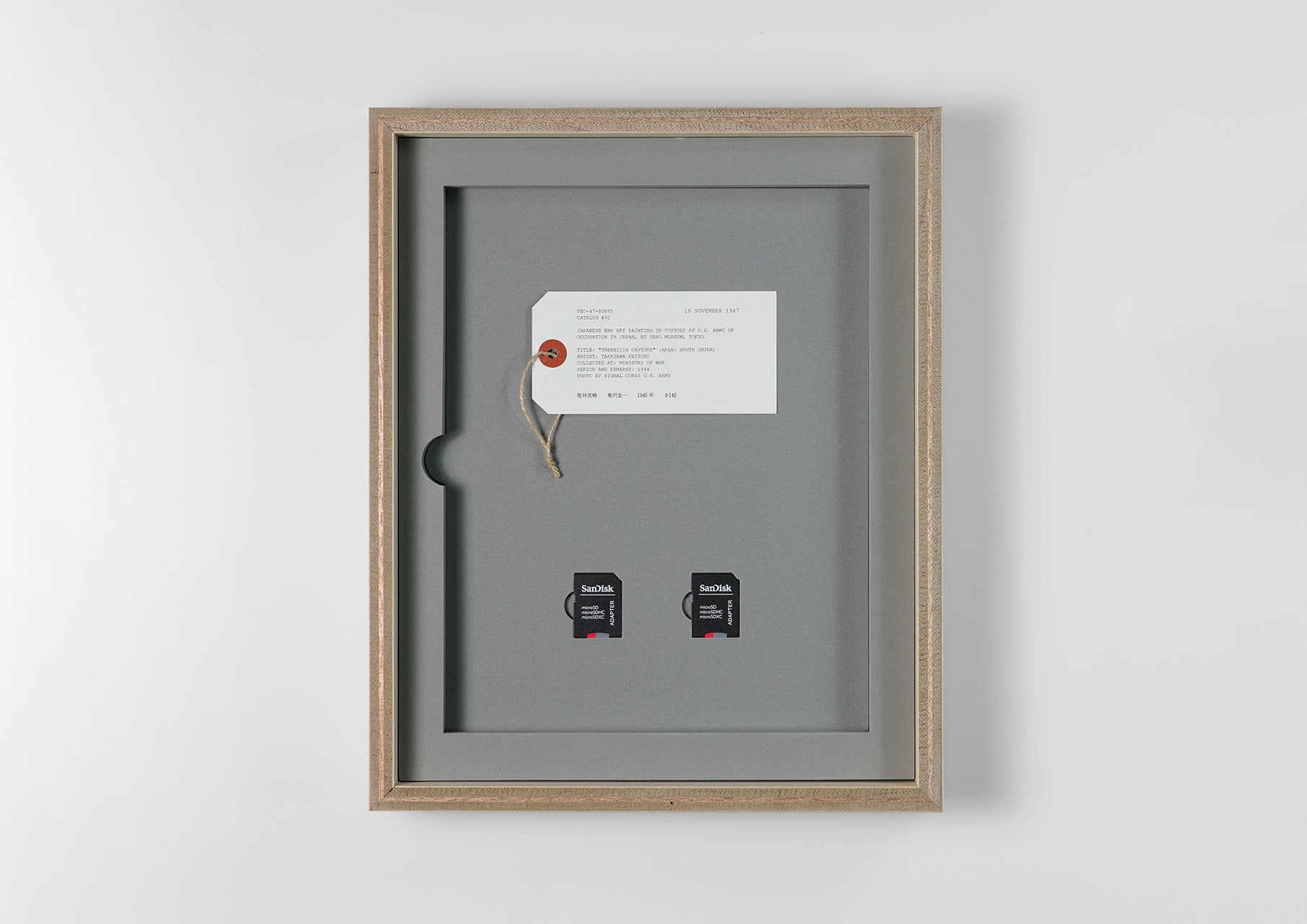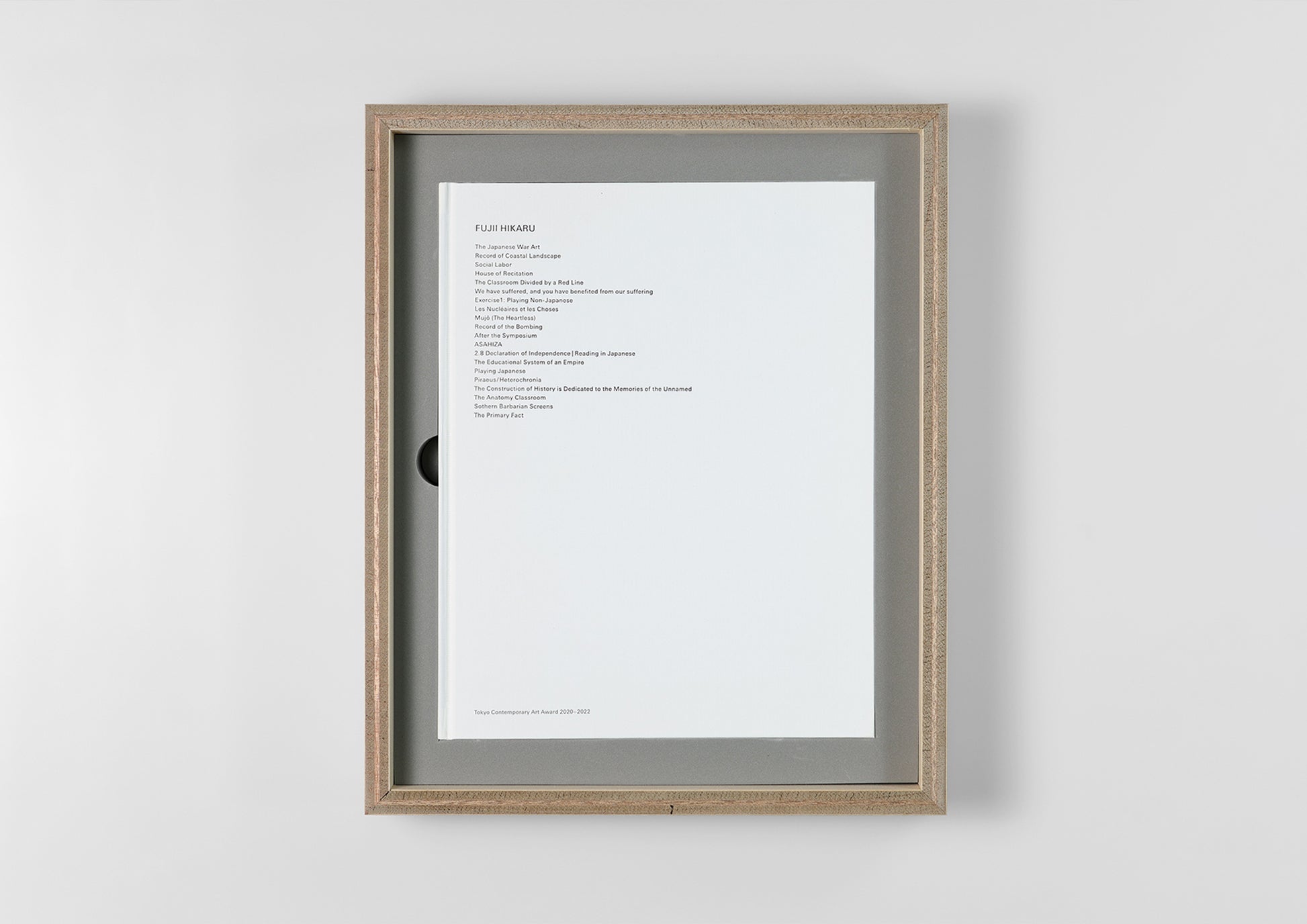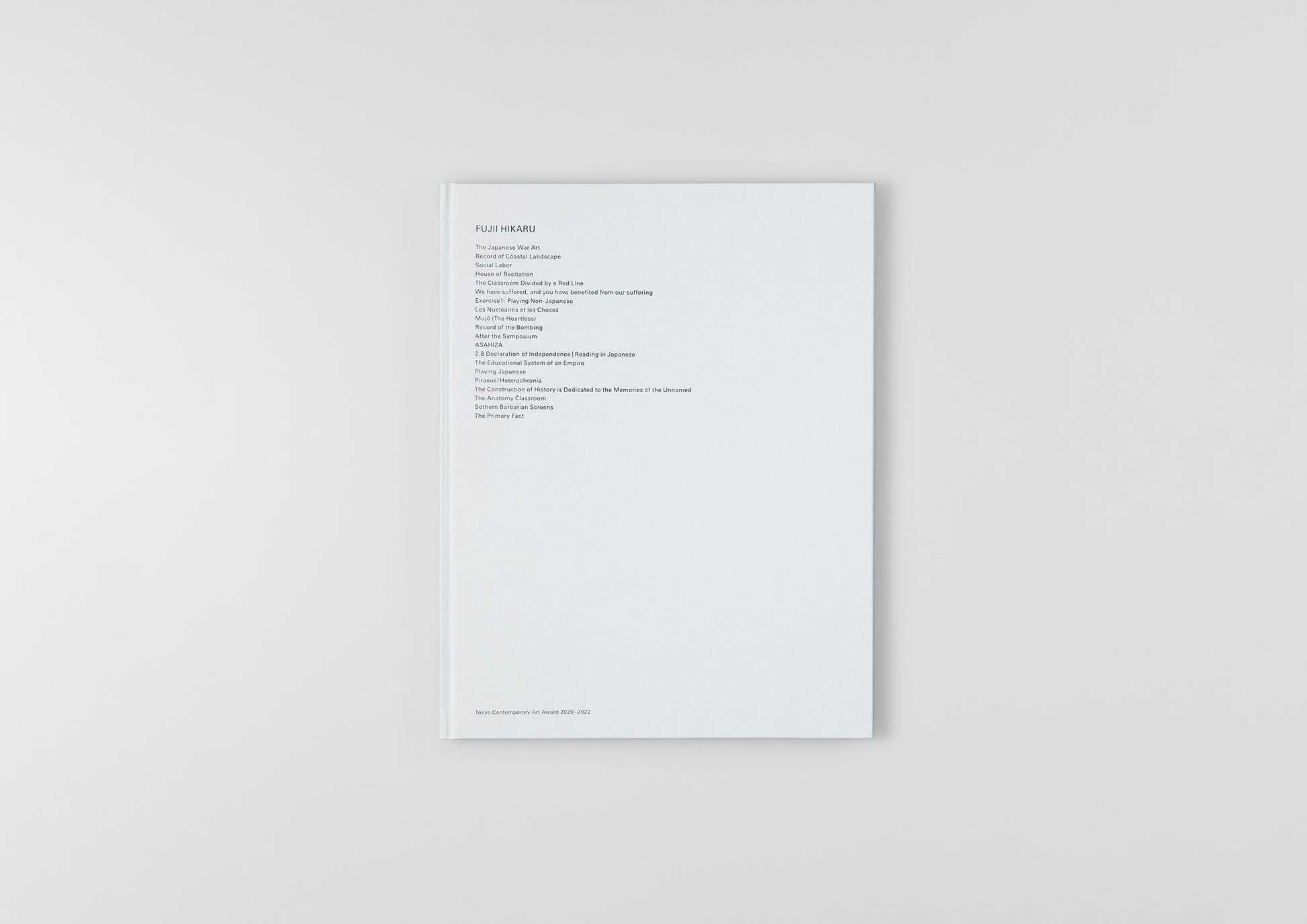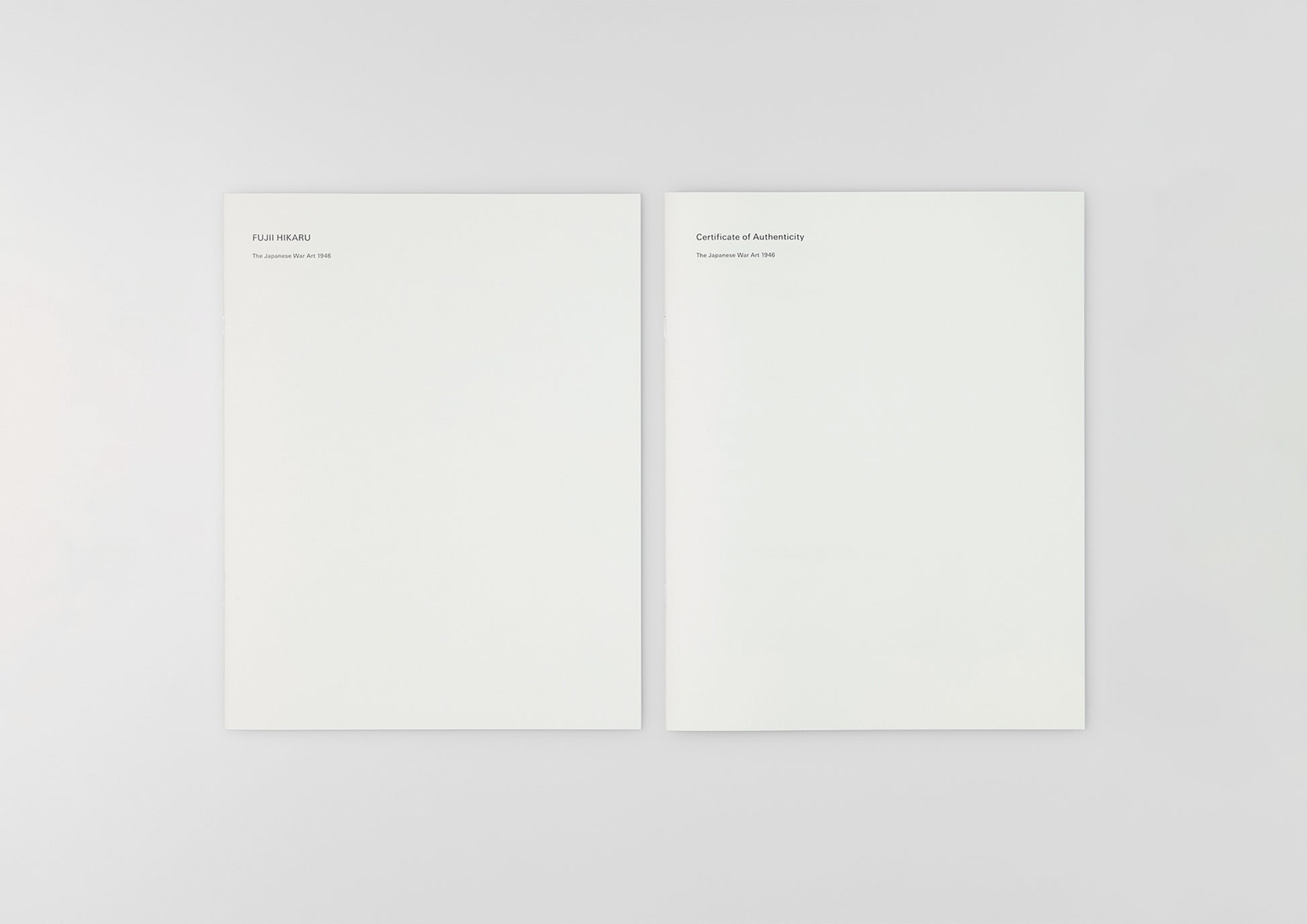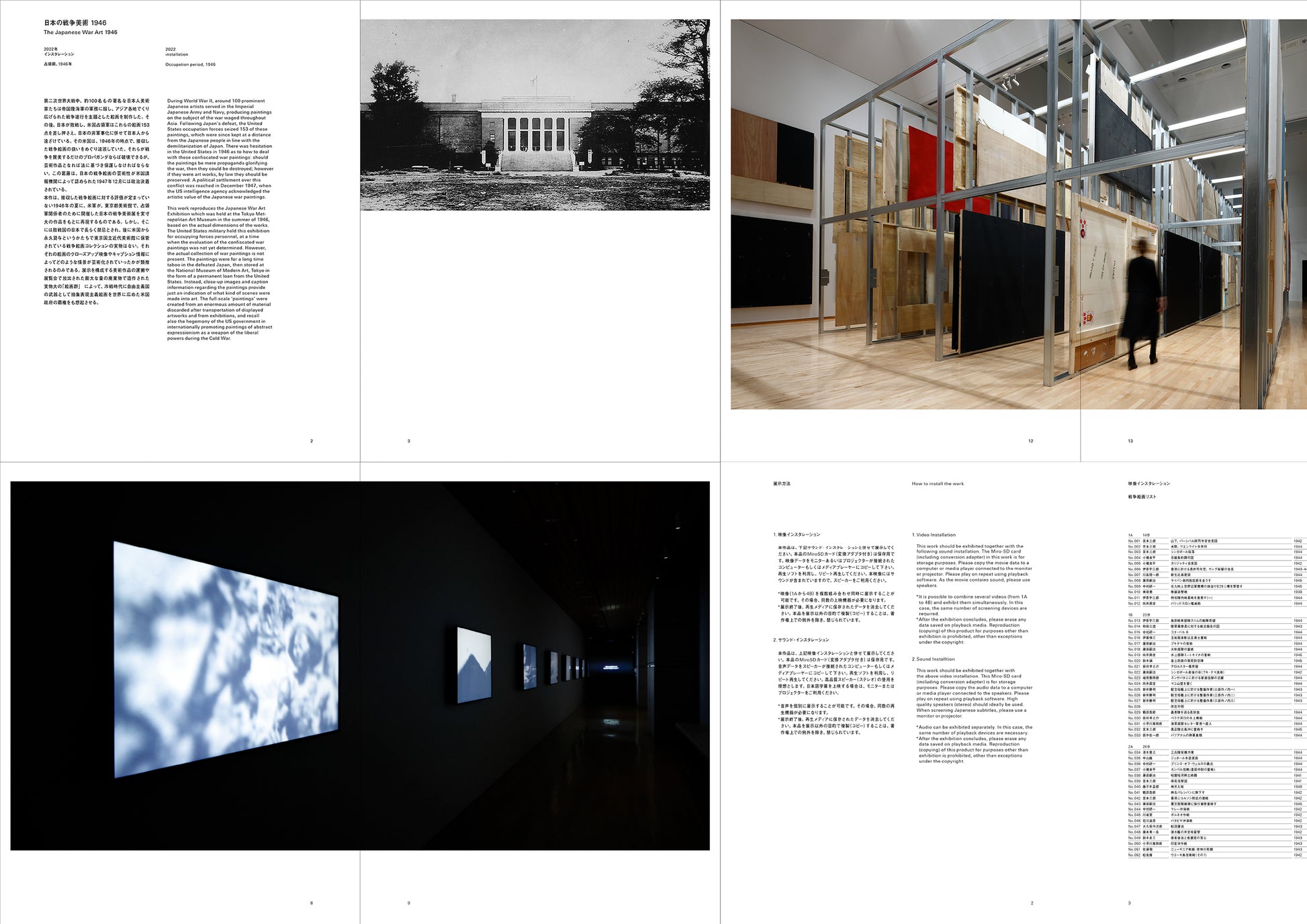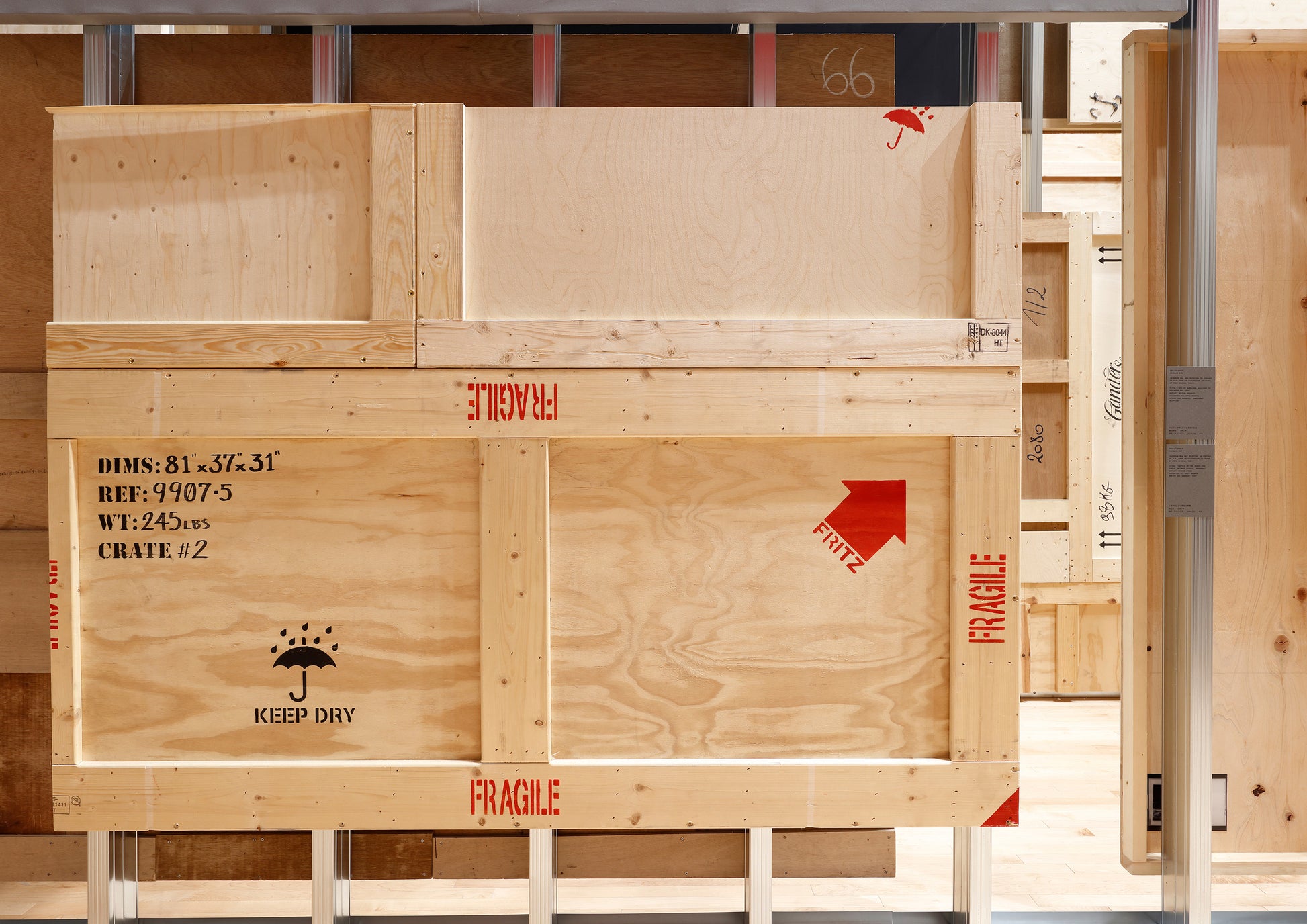Veneer Book | no.112
Bibliographic Details
- Title
- Japanese War Art 1946 / 日本の戦争美術 1946
- Artist
- Hikaru Fujii / 藤井光
- Year
- 2023
- Size
- h340 × w277 × d48mm
- Language
- Japanese, English / 日本語、英語
- Materials
- Veneer / ベニヤ板
- Edition
- No.112 of 153 / 153冊の中の112番目
- Condition
- New
Certificate of Authenticity (with screening rights), Instructions, Video (SD card): 4A (23min.) / 4B (27min.), Audio (SD card): Sound1 (5min.) / Sound2 (6min.), Tag: TAKAZAWA Keiichi, "Capture of Guilin", 1945, Documents / 作品証明書 (上映権)、インストラクション、映像 (SDカード) : 4A (23分) / 4B (27分) 、音声 (SDカード): サウンド1 (5分) / サウンド2 (6分) 、 付票:高沢圭一『桂林攻略』1945、 資料
The inspiration for Hikaru Fujii,
begins from beyond oblivion.
Veneer Book
This multiple work (Japanese War Art 1946) is based on Hikaru Fujii's installation of Japanese war paintings at the Museum of Contemporary Art Tokyo in 2022, and includes two documentation books, video data, and artwork tags in a wooden box reassembled from scrap veneer after the exhibition was dismantled. The subject matter of the veneer books is a work of art.
The subject of the veneer books are paintings of Japanese people drawn during the war. After the war, GHQ had trouble handling them. Was it a "work of art" or "military propaganda"? After many twists and turns, in August 1946, General MacArthur decided to collect "as many war paintings as possible (153 in total)" at the Ueno Museum of Art to estimate their value.
The details in Hikaru Fujii's paintings reveal traces of paint that transcend ideology and the handiwork of the artists. The inspiration of Hikaru Fujii, which links the hazy past to the ambiguous present, always starts from beyond oblivion.
-
Message
After an exhibition, many of the large installations are discarded.
Many large installations are discarded after the exhibition is over.
Many large installations are discarded after the exhibition is over.
I sought a mechanism that would allow works that approach history to remain in the future, rather than ending up in a single place at a single time and place.
We conceived of an artwork using a "box," and experimented with the shape of the container in which to place images (video) and texts.
The result was a "book" shape. I don't think it was an accident. For me, the most familiar box for storing memories is a book. I would be happy if you could experience "reading" artworks and memories of the past.
Hikaru Fujii
-The Fragile of August 2023
The Fragile Exhibition in August 2023 will feature "Veneer Book" by Hikaru Fujii. This multiple work (Japanese War Art 1946) is based on an installation work on Japanese war paintings at the Museum of Contemporary Art Tokyo in 2022, and contains two document books, video data, and artwork tags in a wooden box reassembled from scrap veneer after the exhibition was dismantled. The installation is a work of art that commemorates Japan's war paintings. Seventy-eight years after the war, the details of the document book and video, which were created by Hikaru Fujii on the theme of "war paintings," bring back to life the blacked-out history of the war.
